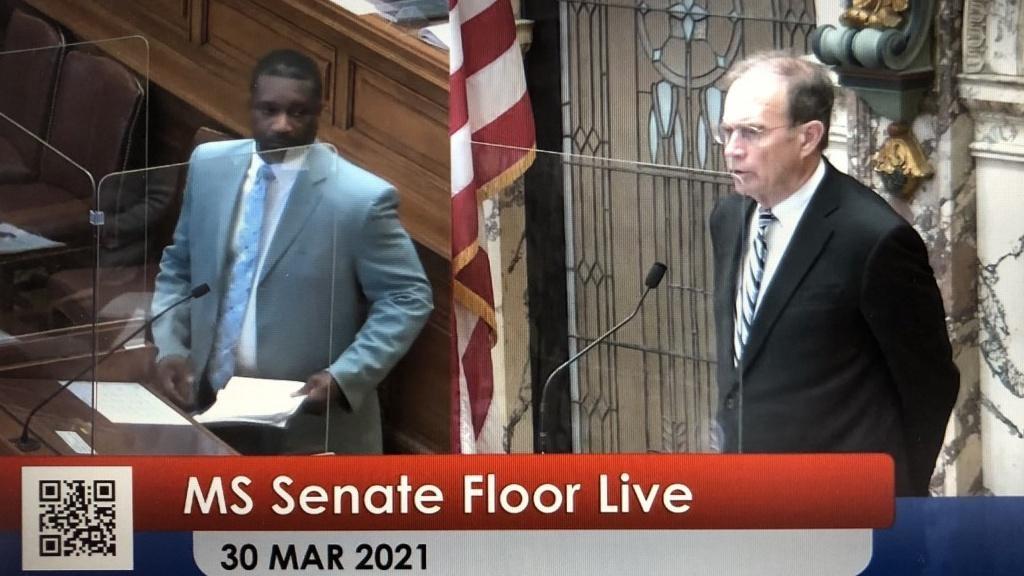Mississippi lawmakers are looking to the governor to sign legislation that will make more inmates eligible for the possibility of parole.
Criminal justice bill that changes parole eligibility headed to gov.'s desk


Mississippi lawmakers are looking to the governor to sign legislation that will make more inmates eligible for the possibility of parole.

LISTEN HERE
The Mississippi Earned Parole Eligibility Act, reduces the time served to be considered for parole. Democratic Senator Juan Barnett of Heidelberg, chairs the Corrections Committee. He says non-violent offenders would serve 25 percent or 10 years whichever is less, before they’d be eligible for parole and he stresses eligible.
“There has to be things done by that individual who is incarcerated. They have to take advantage of all classes, all training and all those things that are provided by MDOC for them to even be considered for this,” said Barnett.
Barnett says certain violent crimes like armed robberies and armed carjackings would require serving 60 percent of the sentence or 25 years whichever is less, for parole consideration. Currently, the Mississippi Department of Corrections website states anyone convicted of these crimes after 1995 is not eligible for parole. Republican Senator Angela Hill of Picayune, read a summary of the bill provided by an attorney, saying she doesn’t support it.
“Offenders who commit violent crimes with a firearm should not be granted eligibility for parole until serving the vast majority of their sentence. That’s my opinion,” said Hill.
Barnett says sexual offenders, murderers and traffickers are among the crimes that don’t qualify for parole. Republican Senator Daniel Sparks of Belmont.
“The majority of these people are going to be released at some point. I think the programming that’s in place and the opportunity for parole eligibility will help the commissioner to work to reduce recidivism,” said Sparks.
Last year, the governor vetoed a criminal justice bill passed by the legislature. Senator Barnett says he’s met with all stakeholders including law enforcement officials and the corrections commissioner who support the bill. Mississippi has one of the highest incarceration rates in the nation.